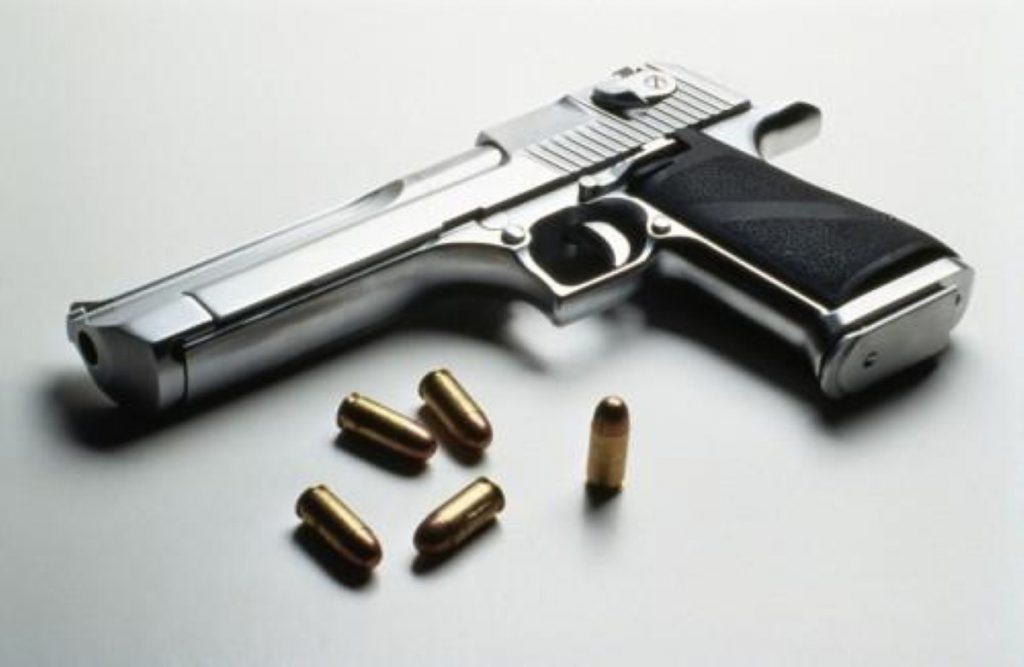Staring down a loaded barrel: US and UK face off over UN arms treaty
By Cassie Chambers
Last-minute changes to the UN arms treaty may be enough for countries to reach an agreement, sources at the negotiations reported today.
The treaty, which seeks to control the largely unregulated international arms trade, has seen the British government – which supports the restrictions – face off against US gun activists, who say the treaty infringes on their constitutional rights.
The fate of the treaty was in question on Thursday, as a bipartisan coalition of US senators said that they would oppose the treaty if it did not put adequate protections for gun owners into place.


Yet hope was restored on Friday, as anonymous sources at the negotiations reported the new text is "a substantial improvement" over previous drafts.
The unnamed source went on to claim that "an historic agreement that effectively regulates the international trade in conventional arms is now very close".
Deputy prime minister, Nick Clegg, also praised the progress that has been made, calling the negotiations "encouraging".
Clegg went on to emphasise the importance of the treaty: "Properly regulated arms will mean less conflict and fewer lives lost. That's a better, more peaceful world and the UK is proud to lead the way."
Opponents of the treaty argue that the internationally drafted regulations would be used domestically in the US to control individuals' ability to purchase guns.
"Any treaty that includes civilian firearms ownership in its scope will be met with the NRA's greatest force of opposition," said the executive vice president of the powerful National Rifle Association (NRA) lobby.
John Bolton, George Bush's ambassador to the UN, also urged opposition to the treaty, saying it would "use restrictions on international gun sales to control gun sales at home".
Those in favour of the treaty argue it would simply close loopholes in existing laws that allow gun dealers to avoid international weapons restrictions.
As it stands, the treaty would require all ratifying states to regulate their arms dealers and consider the potential for weapons to be used violate international laws when approving arms exports.
Many argue the gun lobby's concerns are unfounded, as the resolution that authorised the treaty negotiations recognized the right of nations to regulate "internal transfers of arms".
The large majority of US senators that have come out against the treaty could prove fatal for its passage, however, as the US requires two-thirds of the 100-member Senate to vote in favor of an agreement before it can be ratified.
Gun control has been increasingly on the political agenda in the US this week, after one of the worst-ever mass shootings led to 12 deaths and over 50 injuries in Colorado.
The NRA ramped up its pro-gun lobbying following the shooting, citing concerns that politicians would use the killing as justification to pass unwarranted gun restrictions.
The process for reaching an international arms trade treaty began in 2006, when the general assembly voted in favor of proceeding with negotiations. Although Bush opposed the process, the Obama administration endorsed the negotiations in 2009.
Treaty negotiations have been underway in New York for the past four weeks; today is the deadline for reaching consensus.
Clegg stressed the urgency of the situation, saying: "We are now in the end-game for a new treaty. Coalition ministers have been hitting the phones and our delegation in New York have been working round the clock to push for an ambitious outcome.
"Today is decision day for all nations…It is not hyperbolic to describe it as a life and death decision."









